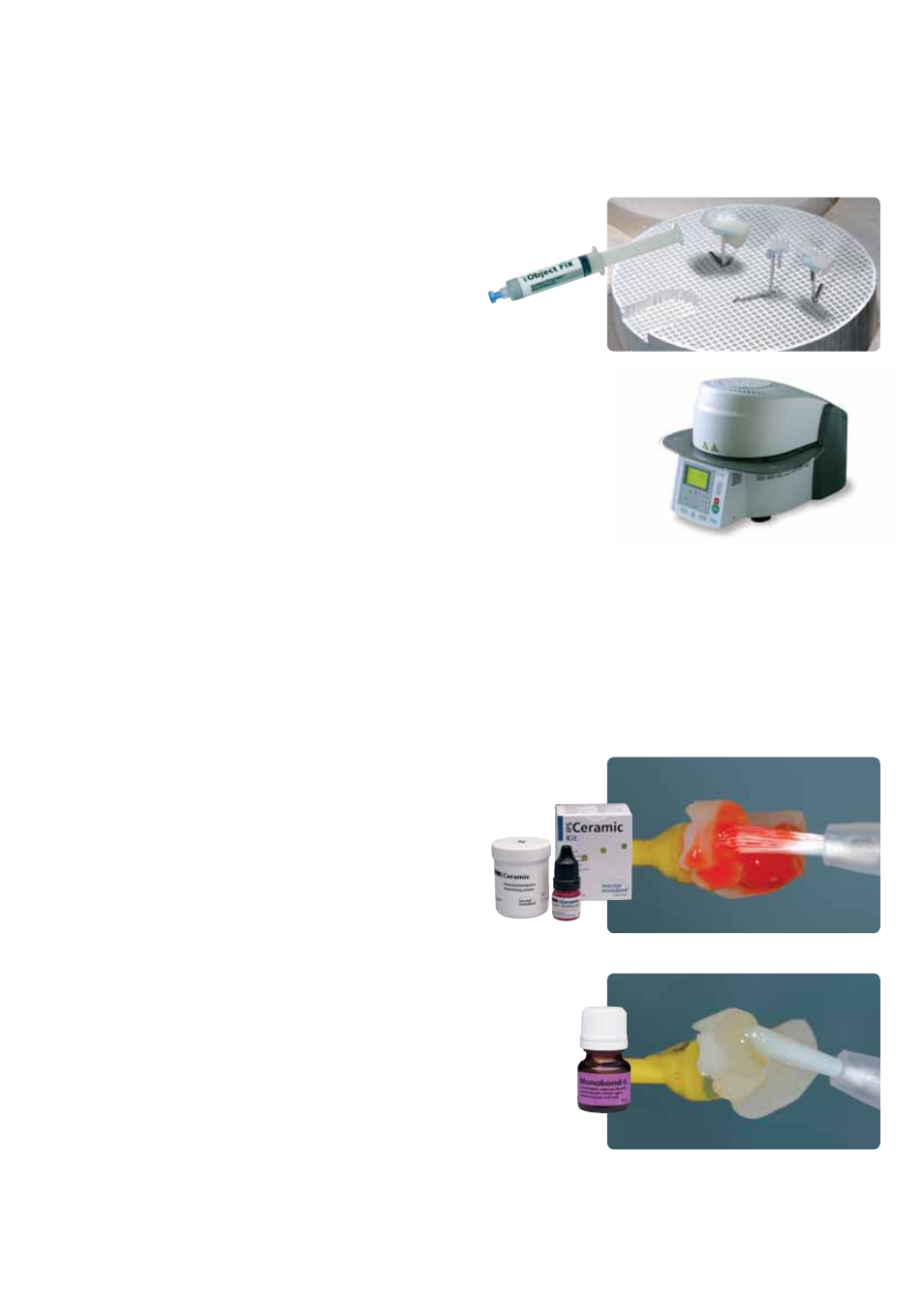Etching and silanating, Ceramic firing – Ivoclar Vivadent IPS Empress CAD Chairside - de-en-es-it-ru User Manual
Page 65

17
Etching and silanating
Conditioning of the ceramic furnace to prepare for adhesive cementation is required
for a sound bond between the cementation material and the all-ceramic restoration.
Generally, glass-ceramics are etched using IPS
®
Ceramic Etching Gel.
Etching produces retentive bonding surfaces, which increases the bond
between the luting composite and the all-ceramic restoration.
IPS Ceramic Etching gel is exclusively intended for extra-oral use
and must not be applied in the oral cavity.
Subsequent silanating of the bonding surface using Monobond-S results in a sound
bond between the etched all-ceramic material and the luting composite. The
bonding silane is thus an important contributor to the bonding strength between
the IPS Empress CAD restorations and the tooth structure.
Ceramic firing
IPS Empress CAD restorations are generally fired on a honey-comb firing tray. For that
purpose, the restorations are placed either on a firing pillow or metal pins. As an
alternative and to better secure the restorations on the metal pins,
IPS
®
Object Fix auxiliary firing paste can be used.
Ceramic firing is conducted in the Programat
®
P300. ceramic furnace. The furnace
convinces users with its economic efficiency and easy operating concept. The furnace
is supplied from the factory with preset programs for IPS Empress and IPS e.max.
